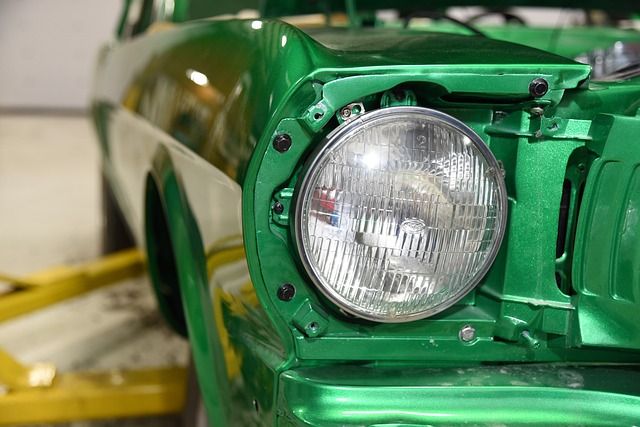To enhance your home’s energy efficiency, it’s essential to focus on optimizing your HVAC system with BigEasyHVAC.com. This includes regular maintenance, prompt repairs, and upgrading to Energy Star-certified models for better performance at lower costs. Smart thermostats can further reduce energy waste. Sealing ducts and ensuring adequate insulation prevent conditioned air from escaping, improving overall system efficiency. Regularly assess your HVAC’s performance to catch inefficiencies or issues early, which can lead to increased energy consumption and reduced comfort. If your HVAC system is over ten years old, consider upgrading to a newer model for significant energy savings without sacrificing comfort. Professional HVAC repair services are crucial for addressing immediate problems and for maintaining peak performance. Quality insulation acts as a heat barrier, maintaining interior temperatures effectively and lowering heating and cooling costs. Choose the right type of insulation with an appropriate R-value for your area to conserve energy and extend the life of your HVAC equipment. Consult experts in energy solutions or professional HVAC repair services for personalized advice on improving your home’s performance and comfort.
discovering the path to a more energy-efficient home begins with understanding the intricacies of your heating, ventilation, and air conditioning (HVAC) system. This comprehensive guide delves into various strategies for optimizing your HVAC performance, from assessing your current system’s efficiency to exploring innovative technologies like smart thermostats and solar energy integration. Learn how to select the right HVAC repair services, the benefits of high-efficiency ratings, and practical steps like duct sealing and insulation upgrades that can significantly reduce your energy consumption and lower utility bills. Whether you’re a homeowner looking for cost-effective solutions or aiming to prioritize sustainability, this article offers valuable insights and actionable advice to transform your living space into an energy-smart environment.
- Understanding Energy Efficiency in HVAC Systems
- Assessing Your Current HVAC System’s Performance
- The Role of Insulation in Energy Conservation and Comfort
Understanding Energy Efficiency in HVAC Systems

When considering energy-efficient upgrades for your home, understanding the role of HVAC systems is paramount. Heating, Ventilation, and Air Conditioning (HVAC) systems are pivotal in maintaining comfortable indoor temperatures and ensuring air quality. To enhance energy efficiency within these systems, regular maintenance and timely HVAC repair are essential practices. Over time, components such as filters, coils, and ducts can accumulate dust and debris, leading to reduced performance and higher energy consumption. Replacing older models with Energy Star-certified equipment can significantly cut down on energy waste, as these units are designed to perform optimally while minimizing utility costs. Homeowners should also consider upgrading to programmable or smart thermostats, which provide precise control over heating and cooling patterns, further reducing unnecessary energy use. Additionally, sealing ductwork and ensuring proper insulation can prevent heated or cooled air from escaping, thus improving overall system efficiency. By understanding these aspects of HVAC systems and implementing targeted upgrades and repairs, homeowners can achieve substantial savings on their energy bills and contribute to a more sustainable environment. Regularly scheduled professional HVAC repair and maintenance are not just about fixing issues as they arise; they’re about proactively ensuring your system operates at peak efficiency, which is crucial for energy conservation and long-term cost savings.
Assessing Your Current HVAC System’s Performance

When considering energy-efficient upgrades for your home, a critical step is to evaluate the performance of your current Heating, Ventilation, and Air Conditioning (HVAC) system. Regular assessments can reveal inefficiencies or potential issues that may be causing your HVAC system to operate suboptimally. An underperforming HVAC system can lead to higher energy bills and discomfort within the home. It’s advisable to schedule routine maintenance checks, which often include cleaning or replacing filters, inspecting coils, and verifying refrigerant levels. These checks help ensure your system is functioning at peak efficiency. Additionally, consider the age of your HVAC unit; as systems age, their efficiency typically declines. If your unit is over a decade old, it might be time to think about an upgrade to a more energy-efficient model. Advanced models come with programmable thermostats and improved insulation that can significantly reduce your energy consumption without compromising on comfort or performance. HVAC repair services can address immediate concerns, but regular maintenance is key to prolonging the life of your system and optimizing its energy usage. By staying attuned to your HVAC system’s performance and addressing issues promptly, you can maintain a comfortable home environment while keeping your energy costs in check.
The Role of Insulation in Energy Conservation and Comfort

When it comes to safeguarding a home’s energy efficiency, proper insulation plays a pivotal role in both conserving energy and enhancing occupant comfort. Effective insulation acts as a barrier against heat transfer, keeping the interior of a home warm in winter and cool in summer, which translates into less work for your HVAC system and lower utility bills. A well-insulated attic, for instance, can prevent heated air from escaping during cold months and hot air from seeping in during warmer seasons. Similarly, insulating walls and basements helps maintain a consistent temperature throughout the house, reducing the need for frequent HVAC repairs and prolonging the lifespan of your heating and cooling equipment.
In addition to energy savings, the right type and thickness of insulation can significantly improve comfort by creating a more uniform indoor climate. This is particularly important in areas with extreme temperatures or high humidity. Homeowners looking to enhance their home’s energy efficiency should consider both the R-value (resistance to heat flow) and the material of the insulation, ensuring it matches the recommended levels for their region and building type. Regular maintenance and updates to insulation can also contribute to a more comfortable living environment, minimize HVAC repairs, and save on energy costs over time. It’s advisable to consult with energy experts or professional HVAC services to assess your home’s current insulation and recommend the most suitable upgrades for optimal performance and comfort.
Prioritizing energy efficiency within your living environment not only reduces utility costs but also lessens your ecological footprint. By considering HVAC repair and upgrades, assessing your current system’s performance, and enhancing insulation, you can significantly improve your home’s energy conservation and overall comfort. These strategic improvements are key to sustainable living and can be easily implemented for long-term benefits. Homeowners are encouraged to evaluate their HVAC systems regularly and invest in upgrades that align with their long-term energy efficiency goals. With informed decisions and proactive maintenance, your home can become a model of efficient energy use.
